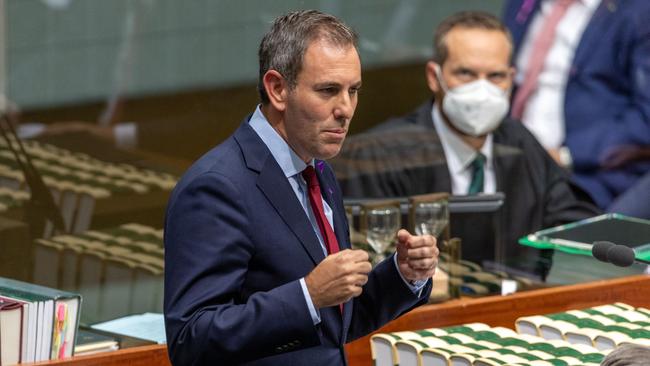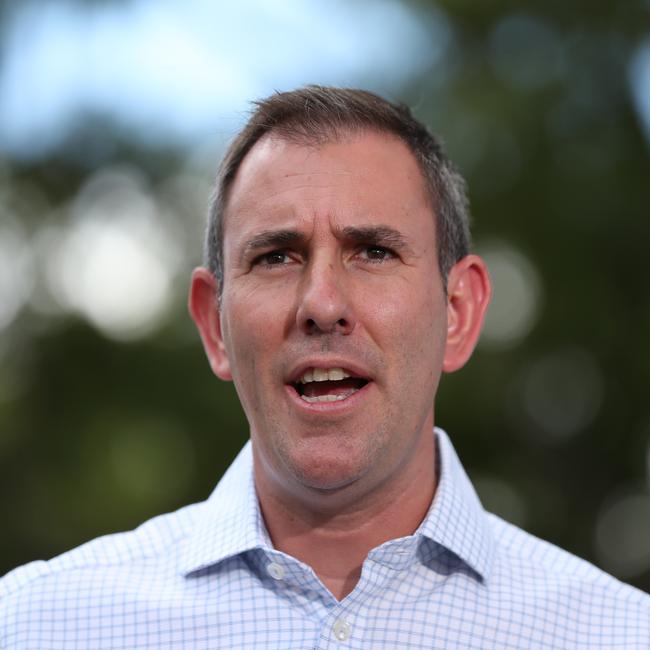More people will be impacted over time due to ‘bracket creep’
Jim Chalmers’ revised tax on superannuation accounts with balances above $3m is actually a tax on all Australians, regardless of their income levels – here is exactly why.

The government has announced plans to increase super taxes. This is marketed as a tax on “wealthy” Australians. But there are some issues beneath the surface. And these issues should concern all Australians.
Where you fall on the super tax debate depends on whether you believe that people should be able keep more of their own money. Let us explore this further.
This is not just a tax on a small set of wealthy Australians. The additional tax applies to anyone with more than $3m in superannuation. And, over time, this will capture more people. Some people might welcome this. Some might not. But the ALP should level with Australians.
In 2023, the $3m cap impacts only around 80,000 people. However, that $3m is not indexed. It does not increase with inflation. It remains constant. More people will be impacted over time due to the equivalent of bracket creep. Treasurer Jim Chalmers specifically indicated that this is the intention. However, he has also insisted on presenting the policy as targeted a small group of wealthy Australians. Which is it?
To put this in perspective, if we assume inflation is 2.5 per cent on average then $3m in 30 years time is around $1.4m in today’s dollars. Similarly, in 50 years it is $850,000. Over time, the tax will impact more people. In 30 years, it will impact 10 per cent of people. This is over 1.6 million super funds on a very conservative estimate.

A possible retort is that the cap might be adjusted in either direction over time. Indeed, it might be adjusted down, thereby impacting more people whenever the government would like to raise more revenue. Further, assuming that government might adjust the cap tacitly acknowledges that Chalmers is not to be believed. This is an odd goal.
A more troubling part of the super tax policy is that it aims to tax unrealised capital gains. The treasurer reportedly has said he was not convinced by arguments that self-managed super funds holding farms and other illiquid assets would be hurt by taxing unrealised gains. However, if this is true, he appears not to have looked at what superannuation funds – SMSFs or otherwise – often invest in.
Many assets held in super will have liquidity issues. These include property, and venture capital and private equity. These are established trillion dollar asset classes. The assertion that super funds should not invest in private equity is ignorant.
There are strong policy reasons to encourage superannuation funds to invest in these asset classes. Venture capital drives innovation and economic growth. Private equity investments – including leveraged buyouts – help to turnaround struggling companies and improve incumbent ones. This generates growth. VC and PE funds are long term investments.
If Jim Chalmers genuinely cares about “values-based capitalism” that improves the economy, he should care about venture capital and private equity.
And other factors make this worse.
Indeed, even inflation would trigger a tax call under the proposal. And even if an asset increases with a 2.5 per cent inflation rate, this would still be a “paper profit” for the purposes of the policy. And so, what we have here is a proposal to tax people for suffering inflation. Ironically, coupled with bracket creep, this reduces the government’s incentive to get fiscal policy in order so as to reduce inflation pressures.
Liquidity shocks are real and are damaging. An uplift in an illiquid asset’s value would force a superannuation fund to sell its liquid assets to pay its new tax bill. This risks forcing a sale at an inopportune time. It also risks exacerbating the fund’s illiquidity problems by eliminating those liquid investments.
There is also the issue of what happens when there is an unrealised capital loss. Can the super fund obtain a tax credit for such a loss. What if the fund’s illiquid assets push it over the $3m threshold. This triggers a liability. But, then there is a market downturn, forcing valuations back down.
Will taxpayers need to compensate the fund for the loss? This would be a perverse outcome.
Finally, what about capital gains tax?
The way it works is that the government is doing away with capital gains tax discounts for those with more than $3m in superannuation. Why?
The government might argue that this is because the “concessions were too favourable”. But, the policy purpose behind capital gains tax discounts is to encourage long-term investment, thereby driving economic growth. It is to encourage patient capital in innovative firms, and to reward the decision to entrust that capital for the long term and to offset the implicit illiquidity cost of locking up that capital.
This exacerbates the decision to tax unrealised capital gains. This turbo charges the cost of taxing paper profits.
Where does this leave us?
This leaves us with a badly designed policy. There are other credible proposals. But, given the rhetoric we have witnessed in recent days, it appears that the government is opposed to people keeping more of their money. This bodes poorly for Australia’s competitiveness.
In essence it creates a perverse incentive: the policy undermines incentives to save more, defer expenditure, work hard and invest well. And this harms growth and productivity.
Perhaps on this occasion the Cabinet should ask themselves: why – and under what circumstances – are they entitled to other people’s assets?
Why aren’t “wealthy Australians” entitled to their assets? Why and when are others – or the government – entitled to them?
Mark Humphrey-Jenner is associate professor of finance at UNSW.






To join the conversation, please log in. Don't have an account? Register
Join the conversation, you are commenting as Logout